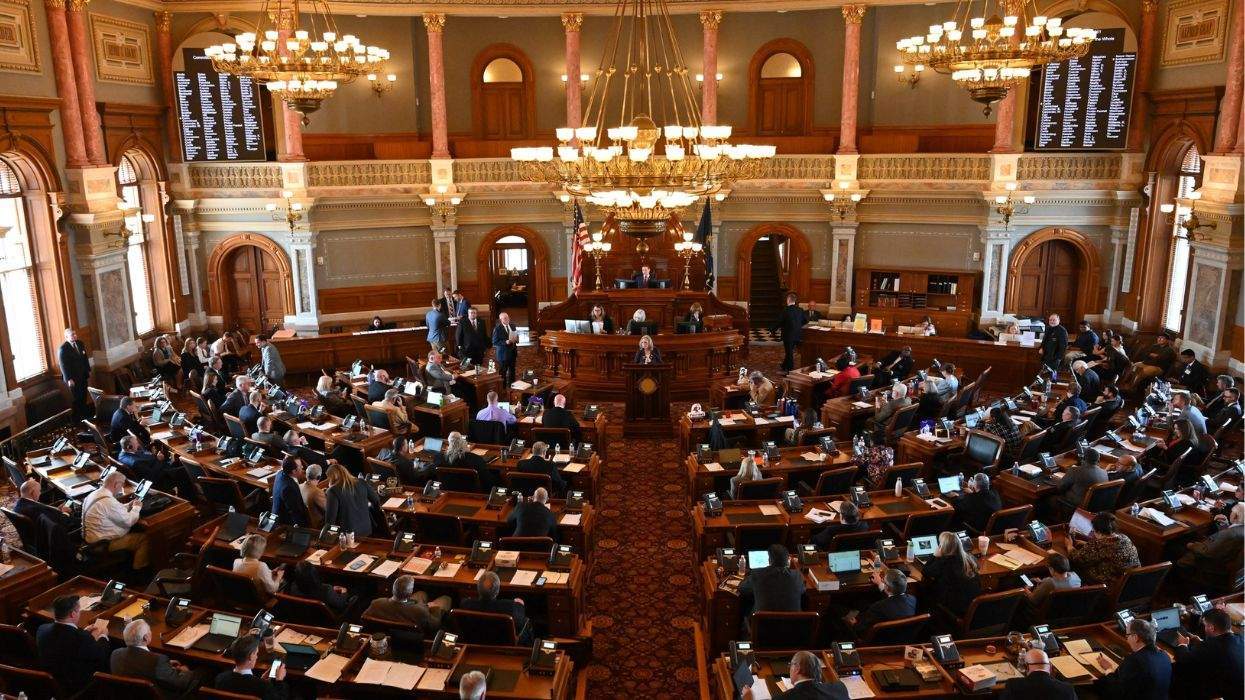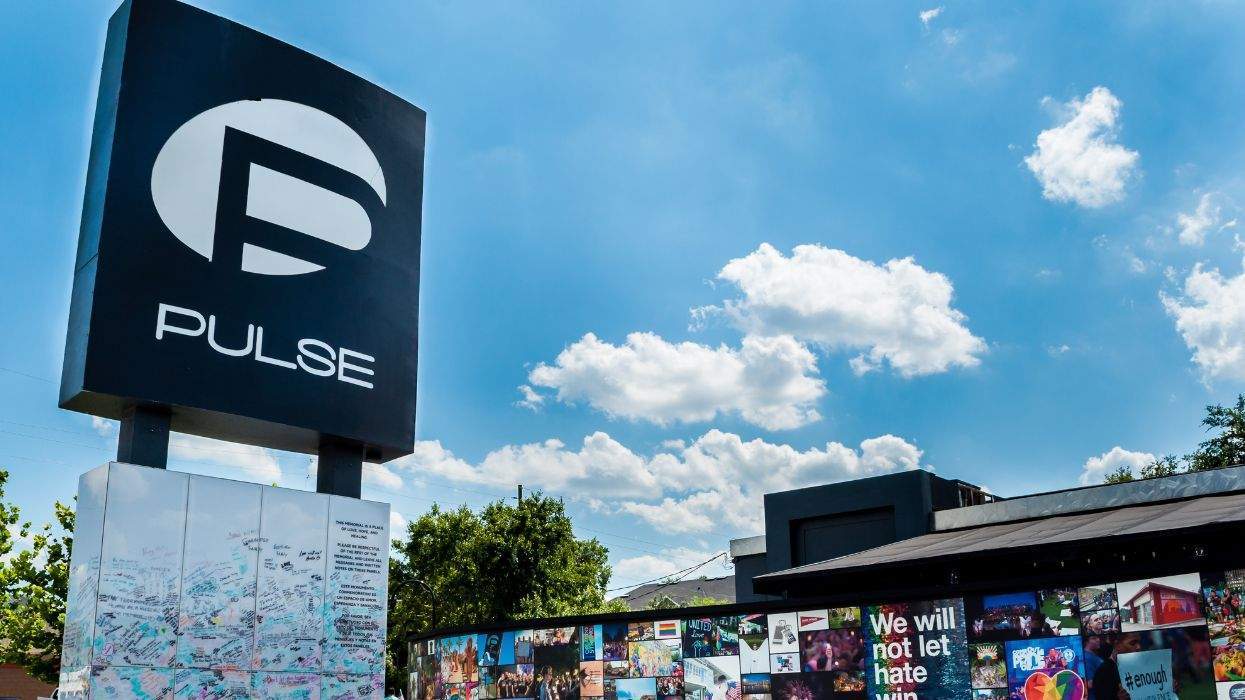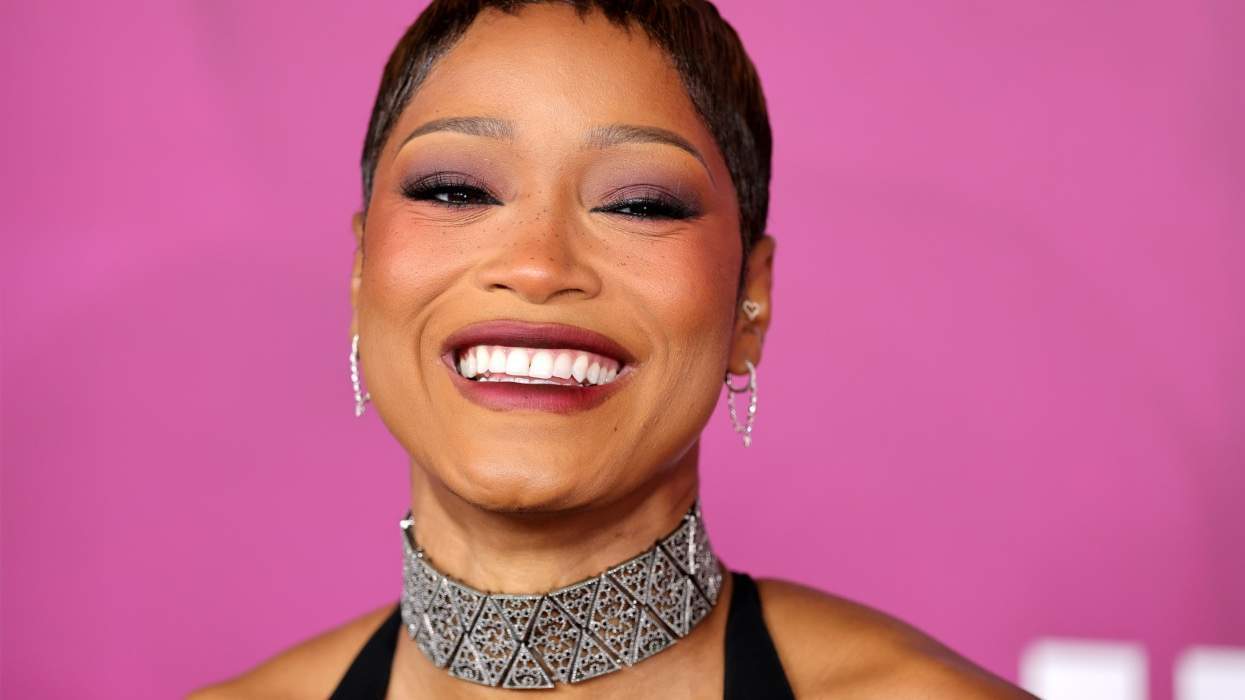Several years ago, when I first started contributing to The Advocate as a side hustle, I tried to track down David Mixner for a column I was writing, and wasn’t having much luck finding an email address.
I looked him up on Facebook, and saw he had almost 5,000 friends. He’ll never see a message from me, I thought. But I gave it a shot. I was shocked when he responded 15 minutes later.
Before I tell you what he said, you should know that I had some trepidation about approaching him because David, who died Monday night, was such an icon. If you were politically astute and coming of age in the early 1990s, as I was, you knew who David was. For me, I’ll never forget seeing pictures of him with then-presidential candidate Bill Clinton. You have to know how astronomical that was because no presidential candidate had ever posed so publicly with an out gay man.
I came to find out just how influential David was a few years later when he made news by breaking with his friend, then President Clinton, over the atrocious “don’t ask, don’t tell” policy. David took some hits by doing that, but he ended up being right. Even then Clinton chief of staff Leon Panetta, who was Defense secretary under President Obama when DADT was overturned, told me he thought DADT was wrong from the get-go.
Mixner not only fought for gays, lesbians, and bisexuals in the military, but he was also a peace activist in the late 1960s, fought for AIDS causes in the 1980s and '90s, was a longtime advocate for same-sex marriage.
It was with all this knowledge about him that I approached David through Facebook Messenger.
I dropped a few names of people I’d spoken to in order to give myself some credibility — although they paled in comparison to all the influential people David knew — and I hit send but didn’t anticipate hearing back. Then I got a notification that I had received a message from David Mixner.
I opened it up, and he responded, “Would love…you are hot!” I let out a giant laugh.
“I'll tell you one of the things that always struck me about him is that he never divorced the sex from sexual liberation,” former Pennsylvania state Rep. Brian Sims, who was very close with David, told me. “He never felt ashamed about being a sexual being while also fighting for LGBTQ+ rights. For him, they were sort of hand in hand. And, you know, he in one breath could talk about love and life and relationships, and the next breath he can talk about sex and, and the lovers in his life. It was a big part of his personality.”
Sims said that many of us have been around people that can talk about the history of LGBTQ+ rights in very profound ways, but very few have the opportunity to be with someone like David who could be very contemporary in the way that he spoke about sex and his friendships and his relationships.
Like me, Sims will never forget the first time he interacted with David. “It was in the fall of 2009. I was working at the Philadelphia Bar Association, and I got a phone call from New York on my caller ID. And I picked up and said, ‘Hi, this is Brian Sims.' And he says, ‘Brian, this is David Mixner. I don't know much about you, but you probably know a lot about me.' And I sort of laughed. I didn't know who he was, but he explained, and he invited me up to his home at the time in Turkey Hollow, New York.”
Sims recalls that David was very ill at the time, and his phone call and invitation came after news had broken years before about Sims being an out college football player. “I was working in politics at the time, and I grabbed my partner at the time after I discovered who David was, and we went to Turkey Hollow and spent three days wrapped in blankets around a fire in his backyard, smoking pot and talking about the world.”
It was during those conversations that David encouraged Sims to run for public office. “He said he’d been trying for years to elect Pennsylvania's first out legislator. And I said to him, ‘I'm not the right person.' But he was adamant that it was me. About a year and a half later, I called him up and said maybe you were right. I trusted him, and he helped me run for office for the very first time.”
Sims also realized that he wasn’t the only one who benefited from David’s crucial encouragement, endorsement, and help. “I would venture to say that he helped hundreds, if not thousands, of LGBTQ+ people consider running for office, and then helped with actual campaigning of running for office. A lot of people can say, ‘Hey, you'd be good at something or you'd be right for this.’ There are not as many people that once you've made the decision to do it can be as helpful as David was. That’s the reason that I brought him to Philadelphia for my swearing-in ceremony in 2012.”
And if there ever was such a thing as a gay Godfather, Sims said it was Mixner. “He was there for my entire career. And for everyone else. I moved about a block away from David at the end of last year and had a lot of opportunities to spend more time with him. He always spoke about how proud he was of so many of the people he helped, like New York City Councilman Erik Bottcher, Sean Patrick Maloney, and so many others who were helped by him and the Victory Fund, which he started.”
I asked Sims about what David’s legacy would be, because he’s leaving so many with his work on civil rights, equality, queers in the military, AIDS, and marriage. What did Sims think would be his most everlasting accomplishment?
“Wow, what a wonderful question. I suppose David's legacy is that we can all do so much more than we think we are capable of. We can fight for marriage equality. We can fight for civil rights, we can fight for representation — that we can do more than just one thing at one time. We don’t have to limit ourselves. He never did.”
Did David feel discouraged about the threats from the extreme right that have crept up in the last few years? “Even in his final years he didn't let that hate stop him. He was proud to speak out and continue to lead as a gay man. There's so many lessons in that for all of us. And I think that truly his legacy is that he impacted the world in so many different ways. And, I think he felt very, very much that his advocacy was a type of advocacy that was available to everyone else, if we just reached out and grabbed it.”
Coming full circle, I told Sims about the first time David popped up on my radar. “Oh, yes, I remember that so well. David is standing next to Bill Clinton, and they are holding hands with their arms raised. And I remember seeing that picture for the very first time and thinking of an out and proud gay man standing next to Clinton as his equal and not standing behind him hiding or looking up at him. They were equal. That was historic.”
The backstory to David’s death is that we are quickly losing most of our historic LGBTQ+ elder leaders, and with them, their stories. They experienced firsthand discrimination, death, fights for equality and marriage, all during a time much more hostile to LGBTQ+ people and all minorities.
While we have books, documentaries, and biopics about our heroes, nothing compares to hearing those stories directly. And nothing compares to having their experiences and advice around, like Sims was able to benefit from.
To be sure, David left a very profound legacy. If you’re friends with him on Facebook, you can see that the tributes posted in his honor have been overwhelming. He clearly touched so many lives and changed them too.
I talked to David after Sen. Dianne Feinstein died. They were close friends, and like Mixner, she was a giant in the realm of LGBTQ+ history. I asked him what he thought about how she would be remembered. “Personally, she will be remembered for her compassion and generosity. She lived life the way she saw the world, and she was so generous with her time and her wisdom.”
David will be remembered for the same things.
John Casey is senior editor at The Advocate.
Views expressed in The Advocate’s opinion articles are those of the writers and do not necessarily represent the views of The Advocate or our parent company, equalpride.
















